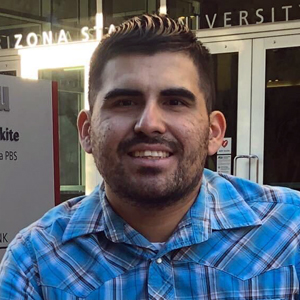
After several years of declines, the number of Arizonans who enrolled for health insurance under the Affordable Care Act leveled off this year, at 154,265. While that’s up slightly from last year, it is still well below enrollment under the Obama administration, which topped 200,000 people for several years. (Photo by Alex Proimos/Creative Commons)
WASHINGTON – After years of steady declines, enrollment in Affordable Care Act coverage ticked up in Arizona and held steady in the U.S. this year in what one advocate called a “pleasant surprise” after a challenging year.
The six-week open enrollment period that ended last Tuesday showed enrollment going from 153,020 in Arizona for coverage plans for this year to 154,265 people who signed up for coverage in 2021, according to preliminary numbers released Friday by the Centers for Medicare and Medicaid Services.
Nationally, the number of people signing up for coverage in the federal exchange dipped from 8.3 million last year to 8.2 million this year – but federal officials note that New Jersey and Pennsylvania shifted from the federal marketplace to state-based marketplaces this year. That removed 578,251 people from those states who would otherwise have been counted on the federal rolls.
CMS Administrator Seema Verma said in a statement Friday that the Trump administration’s “focus on delivering more choices along with a smooth and streamlined consumer experience continues to drive strong enrollment.”
“We’ve opened more pathways to enroll by taking advantage of the private sector and people are clearly finding the coverage they need at this critical time,” she said.
Morgan Tucker, state director for Protect Our Care Arizona, agreed that more people took advantage of coverage this year – but she said it was no thanks to the Trump administration, which she accused of trying to “sabotage” the Obama-era health insurance program.
“Despite anything they may have heard over the last four years, it is safe, reliable health insurance that they can trust,” Tucker said of coverage available under the “Obamacare” program.
The ACA has also been under assault by a coalition of states, including Arizona, that argued before the Supreme Court this fall that the plan is unconstitutional. A ruling in that case is not expected for months, but Tucker said it cast a shadow over this year’s open enrollment.
As in years past, the majority of enrollments came in the last week of the six-week open enrollment period – a much shorter time frame than was allowed in the first years of Obamacare.
More than half of this year’s total enrollment of 8.3 million came in the final 10 days, when 4.4 million people signed up, many of them returning customers, according to CMS data.
This is no surprise to Allen Gjersvig, director of outreach and enrollment services with the Arizona Alliance for Community Health Centers.
“Most enrollments in Arizona always take place after Thanksgiving,” he said. “It’s just the phenomenon.”
Dr. Daniel Derksen, associate vice president for Health Equity, Outreach and Interprofessional Activities at the University of Arizona Health Sciences, said he encourages every Arizonan to “take a look, shop and compare” coverage plans available through the ACA. It is especially important to do so in the face of the COVID-19 pandemic, he said.
“This could be a devastating, bankrupting experience when you need care, and you don’t have coverage,” Derksen said.
Tucker agreed that this “unique year” has proven why health insurance coverage is so crucial.
“I think it’s not a time to gamble with your health,” she said. “You might be young and healthy but that doesn’t make you invincible.”
She said the biggest hurdle during open enrollment this year was trying to get the word out to Arizonans through online events. She said that with a cut in funding for ACA outreach, her organization had to work hard to remind people about the dates for the open enrollment period, but even if someone missed the deadline there’s still options available to get coverage.
“It will come as no surprise that the federal government cut funding for open enrollment outreach, so it was all done through (online) events just trying to get the word out,” Tucker said.
Gjersvig the full picture for this year’s open enrollment won’t come out until January, but he’s optimistic. He also said he hopes the incoming administration of President-elect Joe Biden – who was vice president when Obamacare was enacted – will bring a public information campaign to clear up any misinformation about the ACA.
As for the Supreme Court, which heard arguments in the ACA case, California v. Texas, on Nov. 10, Derksen thinks “it’s highly unlikely that the entire Affordable Care Act will be invalidated.” The court upheld the law once already, in 2012, but the court has shifted to a conservative majority since then. Even if the court disagrees with part of the law now, however, Derksen doubts it will overturn the entire program.
“It seems unlikely that by repealing the tax penalty somehow invalidates the entire Affordable Care Act seems implausible,” he said.
Even though open enrollment ended on Dec. 15, Tucker said there is still a chance to enroll for people who were in line by the close of open enrollment or for people who have had life changes like a job loss or the birth of a child. And she urged people to do so if they can.
“If there’s ever a time where it’s crucial to have health insurance coverage, it’s right now,” she said.

